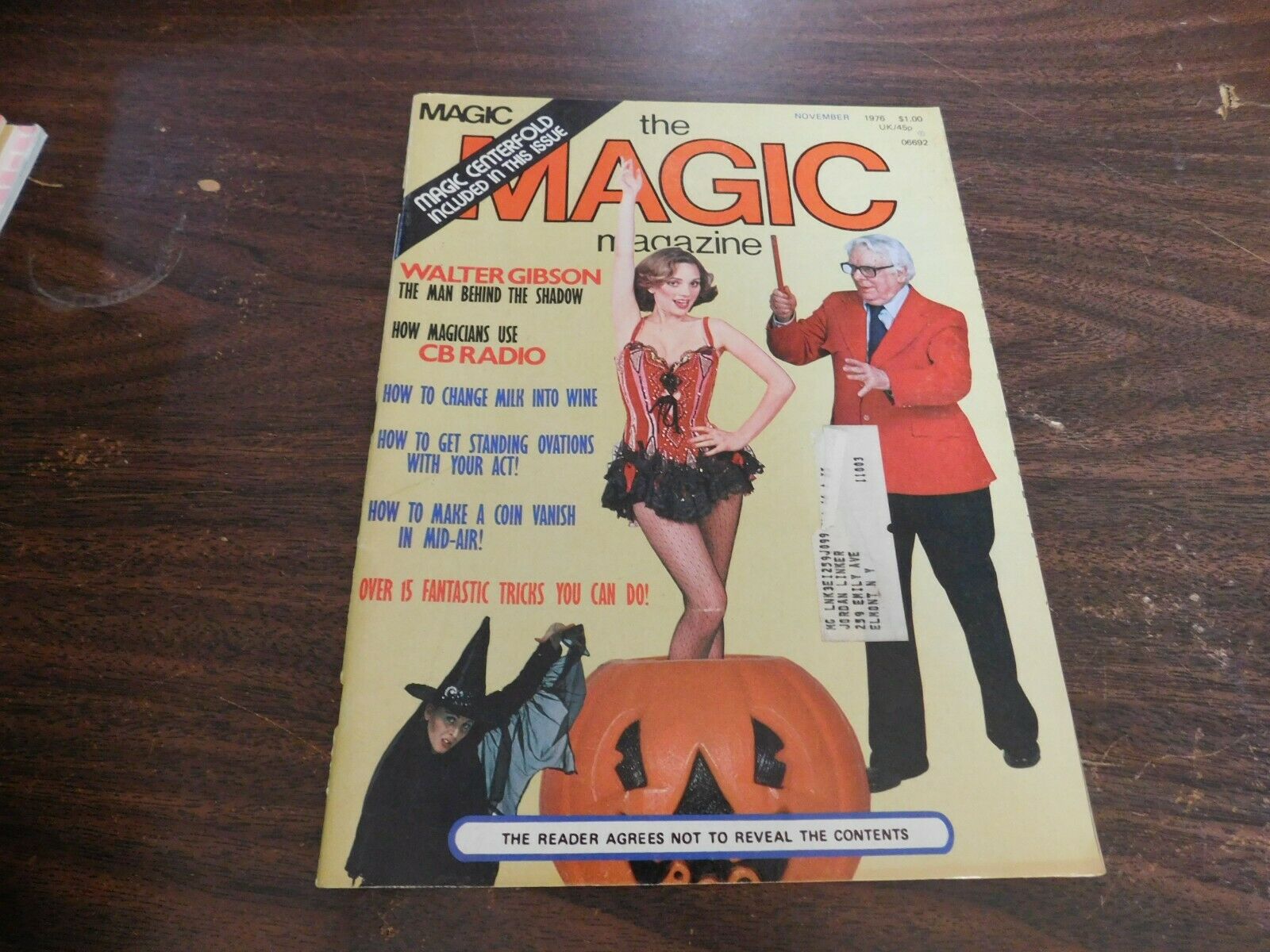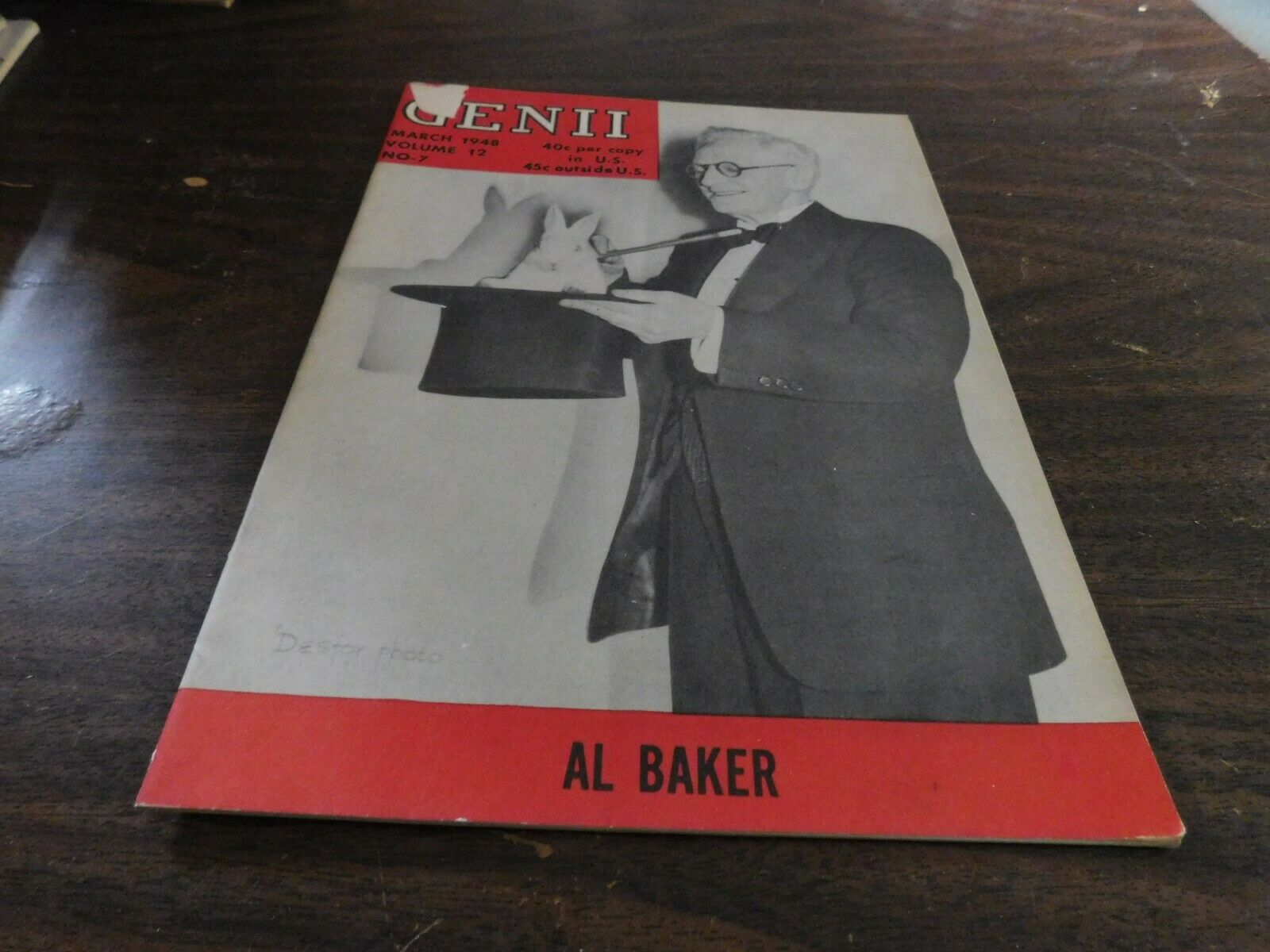-40%
HOUDINI PERFORMS THE GREAT MILK CAN ESCAPE (1908) / Vintage Magic Photo Reprint
$ 8.44
- Description
- Size Guide
Description
"HARRY HOUDINI PERFORMS THE GREAT MILK CAN ESCAPE" (CA. 1908)-
-
FANTASTIC
ARCHIVAL PHOTOGRAPHIC REPRINT
-
Houdini introduced his escape from a giant milk can filled with water in St. Louis in 1908. That same year he took the wildly popular new feat on tour in the United States, England, and Germany.
This is a fantastic and iconic image from the turn of the century, of
Harry Houdi in the milk can, ready to be submerged and perform his logic defying escape.
It measures 8” x 10” and is
truly a fantastic image for framing, display and collecting.
It is p
rinted on 11 mil / 270 gsm professional glossy photographic stock.
This is
a photographic reprint
from a high quality original. When evaluating the quality of the photos, please keep in mind that some of the source photos were taken nearly, if not over 100 years ago, such as this one.
-------
ABOUT HOUDINI'S MILK CAN ESCAPE
Houdini's first great onstage water escape was The Milk Can. Houdini would be locked inside an oversized galvanized milk can filled with water. He would escape while conceded in a curtain cabinet. As part of the effect, Houdini invited members of the audience to hold their breath along with him while he was inside the can.
Houdini first performed the Milk Can escape at the Columbia Theatre in St. Louis on January 25, 1908. It was advertised with dramatic posters that proclaimed "Failure Means A Drowning Death." The escape proved to be a sensation.
The Milk Can marked an evolution of Houdini as a performer. With the Milk Can, Houdini brought his death-defying feats, which had been confined to his outdoor bridge jumps, into the theater itself. In some cities, Houdini accepted challenges to escape from the can after it had been filled with beer by a local brewery. It was during one of these challenges that he had his only mishap when he passed out because of the fumes.
So popular was Houdini's Milk Can that it became wildly imitated by other escape artists. So on June 1, 1911, Houdini introduced a new version of the escape in which the locked water-filled can would also be locked inside a heavy wooden chest. Houdini called it his "Double Fold Death Defying Water Mystery."
-----
ABOUT HARRY HOUDINI
Born Erich Weisz on March 24, 1874, in Budapest, Hungary, young Harry Houdini moved with his family to Appleton, Wisconsin, where he later claimed he was born. Fascinated with magic, he began performing and drew attention for his daring feats of escape. In 1893, he married Wilhelmina Rahner, who became his onstage partner as well. Houdini continued performing escape acts until his death, on October 31, 1926, in Detroit, Michigan.
Famed magician/entertainer Harry Houdini was born Erich Weisz on March 24, 1874, in Budapest, Hungary. One of seven children born to a Jewish rabbi and his wife, Erich moved with his family as a child to Appleton, Wisconsin, where he later claimed he was born. When he was 13, Erich moved with his father to New York City, taking on odd jobs and living in a boarding house before the rest of the family joined them. It was there that he became interested in trapeze arts.
In 1894, Erich launched his career as a professional magician and renamed himself Harry Houdini, the first name being a derivative of his childhood nickname, "Ehrie," and the last an homage to the great French magician Jean Eugène Robert-Houdin. (Although he later wrote The Unmasking of Robert-Houdin, a study that set out to debunk Houdin’s skill.) Though his magic met with little success, he soon drew attention for his feats of escape using handcuffs. In 1893, he married fellow performer Wilhelmina Beatrice Rahner, who would serve as Houdini's lifelong stage assistant under the name Beatrice "Bess" Houdini.
In 1899, Houdini's act caught the attention of Martin Beck, an entertainment manager who soon got him booked at some of the best vaudeville venues in the country, followed by a tour of Europe. Houdini's feats would involve the local police, who would strip search him, place him in shackles and lock him in their jails. The show was a huge sensation, and he soon became the highest-paid performer in American vaudeville.
Houdini continued his act in the United States in the early 1900s, constantly upping the ante from handcuffs and straightjackets to locked, water-filled tanks and nailed packing crates. He was able to escape because of both his uncanny strength and his equally uncanny ability to pick locks. In 1912, his act reached its pinnacle, the Chinese Water Torture Cell, which would be the hallmark of his career. In it, Houdini was suspended by his feet and lowered upside-down in a locked glass cabinet filled with water, requiring him to hold his breath for more than three minutes to escape. The performance was so daring and such a crowd-pleaser that it remained in his act until his death in 1926.
Houdini's wealth allowed him to indulge in other passions, such as aviation and film. He purchased his first plane in 1909 and set out to become the first person to man a controlled power flight over Australia in 1910. While he did it after a few failed attempts, it later was revealed that Houdini was likely beaten to the punch by just a few months by a Capt. Colin Defries, who made a short flight in December 1909.
Houdini also launched a movie career, releasing his first film in 1901, Merveilleux Exploits du Célébre Houdini Paris, which documented his escapes. He starred in several subsequent films, including The Master Mystery, The Grim Game and Terror Island. In New York, he started his own production company, Houdini Picture Corporation, and a film lab called The Film Development Corporation, but neither was a success. In 1923, Houdini became president of Martinka & Co., America's oldest magic company.
Houdini's publishing career didn't end with his literary takedown of Jean Eugène Robert-Houdin, either, as he later wrote Miracle Mongers and Their Methods(1920) and A Magician Among the Spirits (1924).
As president of the Society of American Magicians, Harry Houdini was a vigorous campaigner against fraudulent psychic mediums. Most notably, he debunked renowned medium Mina Crandon, better known as Margery. This act turned him against former friend Sir Arthur Conan Doyle, who believed deeply in spiritualism and Margery's sight. Despite his activism against spiritual charlatanism, Houdini and his wife did in fact experiment with otherworldly spiritualism when they decided that the first of them to die would try to communicate from beyond the grave with the survivor. Before her 1943 death, Bess Houdini declared the experiment a failure.
Though there are mixed reports as to the cause of Harry Houdini's death, it is certain that he suffered from acute appendicitis. Whether his demise was caused by a McGill University student who was testing his will by punching him in the stomach (with permission) or by poison from a band of angry Spiritualists is unknown. What is known is that he died of peritonitis from a ruptured appendix on October 31, 1926, at the age of 52, in Detroit, Michigan.
After his death, Houdini's props and effects were used by his brother Theodore Hardeen, who eventually sold them to magician and collector Sidney H. Radner. Much of the collection could be see at the Houdini Museum in Appleton, Wisconsin, until Radner auctioned it off in 2004. Most of the prized pieces, including the Water Torture Cell, went to magician David Copperfield.
. . . . . . . . . . . . . . . . . . . . . . . .
If you have a question - please ask before you buy! I will answer all questions honestly and quickly.
I appreciate all my customers and will do my very best to make sure you are happy with your purchase so please let me know how I can help.
_gsrx_vers_795 (GS 7.0.7 (795))
_gsrx_vers_1281 (GS 8.3.5 (1281))









